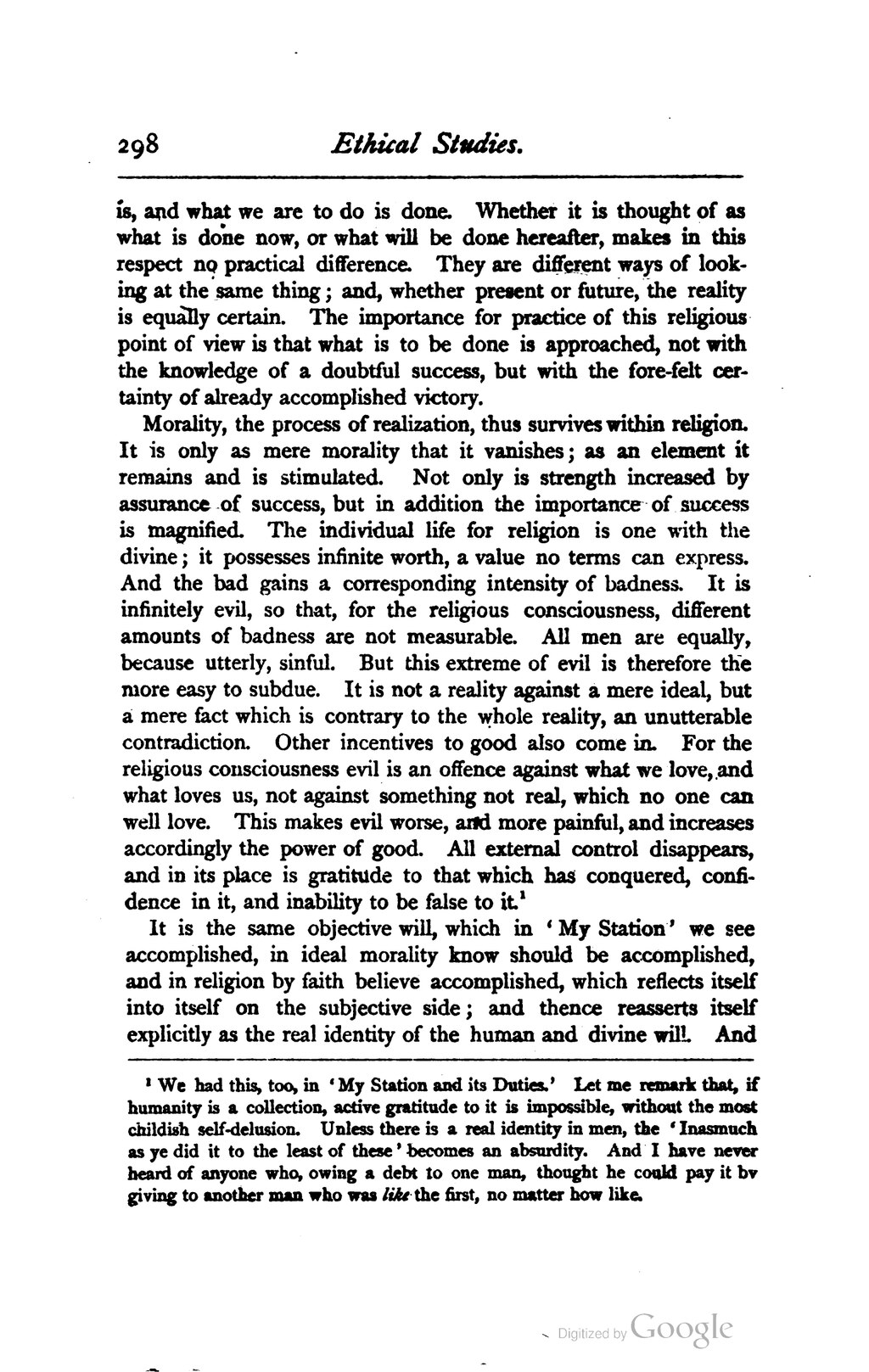is, and what we are to do is done. Whether it is thought of as what is done now, or what will be done hereafter, makes in this respect no practical difference. They are different ways of looking at the same thing; and, whether present or future, the reality is equally certain. The importance for practice of this religious point of view is that what is to be done is approached, not with the knowledge of a doubtful success, but with the fore-felt certainty of already accomplished victory.
Morality, the process of realization, thus survives within religion. It is only as mere morality that it vanishes; as an element it remains and is stimulated. Not only is strength increased by assurance of success, but in addition the importance of success is magnified. The individual life for religion is one with the divine; it possesses infinite worth, a value no terms can express. And the bad gains a corresponding intensity of badness. It is infinitely evil, so that, for the religious consciousness, different amounts of badness are not measurable. All men are equally, because utterly, sinful. But this extreme of evil is therefore the more easy to subdue. It is not a reality against a mere ideal, but a mere fact which is contrary to the whole reality, an unutterable contradiction. Other incentives to good also come in. For the religious consciousness evil is an offence against what we love, and what loves us, not against something not real, which no one can well love. This makes evil worse, and more painful, and increases accordingly the power of good. All external control disappears, and in its place is gratitude to that which has conquered, confidence in it, and inability to be false to it.[1]
It is the same objective will, which in ‘My Station’ we see accomplished, in ideal morality know should be accomplished, and in religion by faith believe accomplished, which reflects itself into itself on the subjective side; and thence reasserts itself explicitly as the real identity of the human and divine will. And
- ↑ We had this, too, in ‘My Station and its Duties.’ Let me remark that, if humanity is a collection, active gratitude to it is impossible, without the most childish self-delusion. Unless there is a real identity in men, the ‘Inasmuch as ye did it to the least of these’ becomes an absurdity. And I have never heard of anyone who, owing a debt to one man, thought he could pay it by giving to another man who was like the first, no matter how like.
